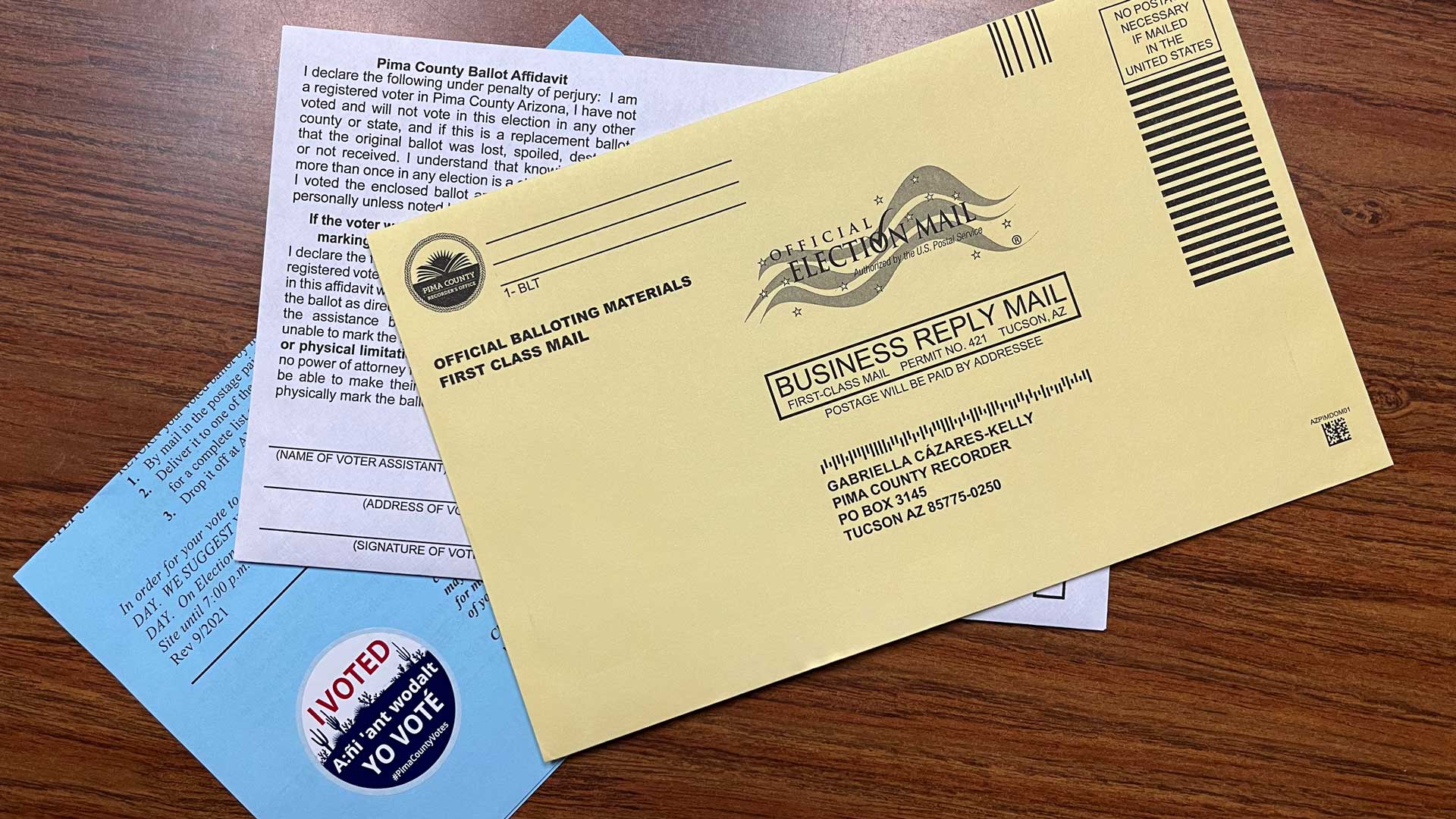
Both parties and the Ninth Circuit judges agreed during an afternoon hearing on Tuesday that there is nothing the court can do regarding two contested 2022 election laws for this election cycle.
The laws in question would require proof of citizenship for state voter registrants and restrict Arizona voters who registered with a federal-only election form from voting for president.
Kory Langhofer represented Republican Senate President Warren Petersen and Republican House Speaker Ben Toma for their appeal. He said there is insufficient time in the appeals process for there to be a ruling before this election.
“The Supreme Court issued its stay the day that ballots printed,” Langhoffer said. “They stayed what they stayed. It didn't include the mail-in provision or the Presidential provision. So as far as I'm concerned, those issues are gone for this election. No need to rush on that.”
The Republican National Committee asked the United States Supreme Court to put on pause a lower court ruling that was made against the 2022 laws. The nation’s high court gave a mixed ruling last month allowing for proof of citizenship for voters registering with a state form this election but stopping the restriction that federal-only voters could not vote for president.
Today’s arguments from Mi Familia Vota emphasized that documentary proof of citizenship would only penalize new registrants. Danielle Lang, an attorney representing the appellees, argued that the statute grandfathers in all registrations that have already happened.
“They are not going to be treated the same way because of the way that they registered,” Lang said. “So it's a completely different circumstance than a mail voting rule that required (documentary proof of citizenship) for everyone who wants to vote by mail.”
Attorney Jonathan Backer represented the United States regarding the presidential and mail voting provisions. He said the state law only partially accepts the federal form when states have to accept the federal form as complete and sufficient as a voter registration application.
“It says, sure, we'll register to vote. But as a part of the registration process, we're going to determine that you are ineligible to vote by mail and so that is inconsistent with the Accept and Use mandate.”
Backer also argued that inquiring about someone’s birthplace when registering is not necessary.
“Election official after election official said birthplace is not used to determine voter qualifications in Arizona, and that's backed up by when it comes to citizenship. You have DPOC already for all state form voters, so there's no need to further inquire.”
Langford disagreed.
“That sort of silver bullet argument could kill every election reform,” Langford said. “That can't be the proper approach. It's not the doctrine. It's sort of a rhetorical gimmick.”
Promise Arizona, a respondent in the case, argued that the court should find that there was discriminatory intent when creating these laws–an issue that the district court ruled against.
“There was a climate of baseless accusations that people are not only citizens registered to vote but are illegal immigrants trying to vote,” attorney Ernest Herrera said. “There has been no evidence of noncitizen voting, except in a couple of cases over the last 20 years.”
Herrera recalled an occasion where republican Senator Sonny Borelli told democratic senator Martin Quezada that it's the people in his neighborhood that are doing this and that’s why the law needed to be passed. Last year, Capitol Media Services reported that Borelli denied those claims and that Quezada was “either hallucinating or completely fabricating for political gain.”

By submitting your comments, you hereby give AZPM the right to post your comments and potentially use them in any other form of media operated by this institution.